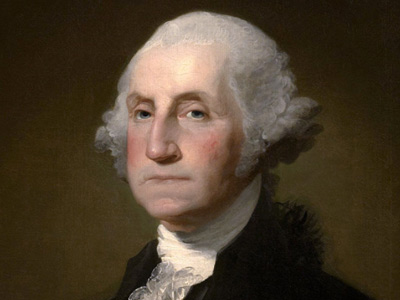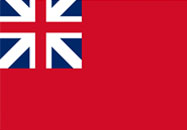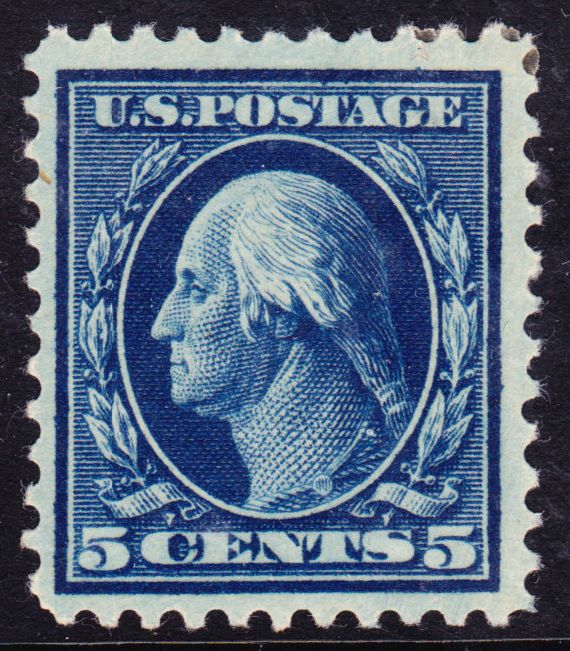George Washington (1732-1799)
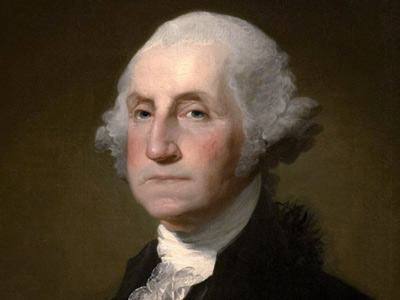
Presidency (1789–1797)
The Electoral College unanimously elected Washington as the first president in 1789 and again in 1792. He remains the only president to receive the totality of electoral votes. John Adams received the next highest vote total and was elected vice president. Washington was inaugurated on April 30, 1789, taking the first presidential oath of office on the balcony of Federal Hall in New York City. The oath was administered by Chancellor Robert R. Livingston: "I do solemnly swear that I will faithfully execute the Office of President of the United States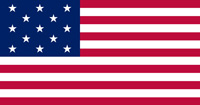 The United States of America (USA), is a country in North America. The American Revolutionary War (April 19, 1775 - September 3, 1783) was the military conflict in which American patriot forces under George Washington's command defeated the British, establishing and securing the independence of the United States. After the Revolution, the United States gained independence, the first nation-state founded on Enlightenment principles of liberal democracy. and will, to the best of my ability, preserve, protect, and defend the Constitution of the United States." Historian John R. Alden indicates that Washington added the words "so help me God."
The United States of America (USA), is a country in North America. The American Revolutionary War (April 19, 1775 - September 3, 1783) was the military conflict in which American patriot forces under George Washington's command defeated the British, establishing and securing the independence of the United States. After the Revolution, the United States gained independence, the first nation-state founded on Enlightenment principles of liberal democracy. and will, to the best of my ability, preserve, protect, and defend the Constitution of the United States." Historian John R. Alden indicates that Washington added the words "so help me God."
The 1st United States Congress voted to pay Washington a salary of $25,000 a year—a large sum in 1789, valued at about $340,000 in 2015 dollars. Washington faced financial troubles then, yet he initially declined the salary. At the urging of Congress, he ultimately accepted the payment to avoid setting a precedent whereby the presidency would be perceived as limited only to independently wealthy individuals who could serve without any salary. He was aware that everything which he did set a precedent, and he attended carefully to the pomp and ceremony of office, making sure that the titles and trappings were suitably republican and never emulated European royal courts. To that end, he preferred the title "Mr. President" to the more majestic names proposed by the Senate.
Washington proved an able administrator and established many precedents in the functions of the presidency, including messages to Congress and the cabinet form of government. He set the standard for tolerance of opposition voices, despite fears that a democratic system would lead to political violence, and he conducted a smooth transition of power to his successor. He was an excellent delegator and judge of talent and character; he talked regularly with department heads and listened to their advice before making a final decision. In handling routine tasks, he was "systematic, orderly, energetic, solicitous of the opinion of others ... but decisive, intent upon general goals and the consistency of particular actions with them." After reluctantly serving a second term, Washington refused to run for a third, establishing the tradition of a maximum of two terms for a president which was solidified by Thomas Jefferson and James Madison.
During his first term in office, Washington had to contend with major problems, old and new. The United States was not completely unified; North Carolina and Rhode Island had not yet formally joined the Union, and the status was uncertain of the independent Vermont Republic. Great Britain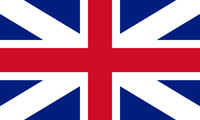 The Kingdom of Great Britain was a sovereign country in Western Europe from 1 May 1707 to the end of 31 December 1800. The state was created by the 1706 Treaty of Union and ratified by the Acts of Union 1707, which united the kingdoms of England (which included Wales) and Scotland to form a single kingdom encompassing the whole island of Great Britain and its outlying islands, with the exception of the Isle of Man and the Channel Islands. refused to relinquish its forts in the American West. Additionally, the United States Army was minuscule and the United States Navy did not exist. The old Confederation lacked the powers to handle the needed workload. It had weak leadership, no executive, a small bureaucracy of clerks, a large debt, worthless paper money, and no taxing power.
The Kingdom of Great Britain was a sovereign country in Western Europe from 1 May 1707 to the end of 31 December 1800. The state was created by the 1706 Treaty of Union and ratified by the Acts of Union 1707, which united the kingdoms of England (which included Wales) and Scotland to form a single kingdom encompassing the whole island of Great Britain and its outlying islands, with the exception of the Isle of Man and the Channel Islands. refused to relinquish its forts in the American West. Additionally, the United States Army was minuscule and the United States Navy did not exist. The old Confederation lacked the powers to handle the needed workload. It had weak leadership, no executive, a small bureaucracy of clerks, a large debt, worthless paper money, and no taxing power.
HISTORY
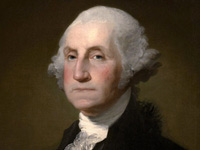
RESOURCES
This article uses material from the Wikipedia article "George Washington (1732-1799)", which is released under the Creative Commons Attribution-Share-Alike License 3.0.
© Stories Preschool. All Rights Reserved.
